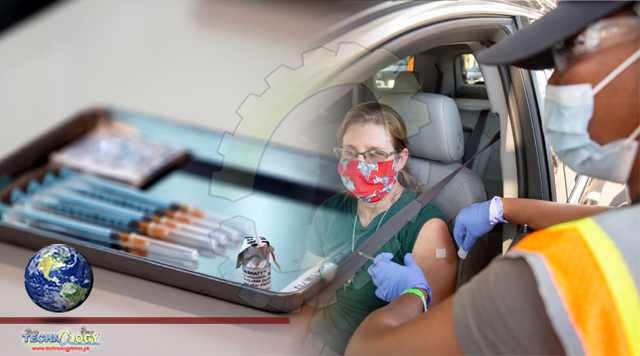In a major shot in the arm for the COVID-19 Pfizer vaccine, researchers have reported in two studies that it is highly effective in protecting against severe COVID-19 infections caused by the variants first reported in the UK and South Africa.

In a major shot in the arm for the Pfizer-BioNTech COVID-19 vaccine, researchers have reported in two studies that it is highly effective in protecting against severe COVID-19 infections caused by the variants first reported in the UK and South Africa.
In a study published in the New England Journal of Medicine on May 5, researchers analysed the prevalence of COVID-19 cases in Qatar from February 1 to March 31. Genome sequencing data from this period suggested that the B.1.1.7 and B.1.351 variants accounted for almost 95% of cases in the country.
They found that the vaccine was at least 87% effective at preventing COVID-19 due to B.1.1.7 and 72% effective at preventing COVID-19 due to B.1.351. They also reported that the vaccine could prevent severe COVID-19 caused by any of the variants with 97.4% effectiveness.
Laith Abu-Raddad, an epidemiologist in Qatar, told the New York Times that the findings regarding the B.1.351 variant were very hopeful, since this is “probably the nastiest of all the variants of concern”.
Similar, another group of researchers – this one including those affiliated with Pfizer – published a study in The Lancet based on 2.3 lakh COVID-19 infections in Israel between January 24 and April 3, 2021. In this country, the B.1.1.7 variant alone accounted for 95% of infections in this period.
Here, the researchers reported that the Pfizer-BioNTech vaccine was at least 95% effective at preventing severe COVID-19 caused by any of the variants. In the group of people who were older than 85 years and had received both doses of the vaccine, the effectiveness remained at a high, of 94%.
As of May 4, more than half of all Israelis had received both doses of the vaccine. In Qatar, 22% had received both doses and 37% had received one dose, according to data collected by the US Centres for Disease Control.
The studies offer hope that COVID-19 vaccines remain a feasible way for countries to exit the COVID-19 pandemic. They also spell good news for Pfizer, which is also planning to apply for emergency approval in the US for children aged 2-11 years to receive the vaccine.
Pfizer is currently in talks with the Indian government to sell doses of its vaccine in India. Earlier this year, government officials had said the vaccine wouldn’t be needed in India and that the two it had approved for use at the time, Covaxin and Covishield, would suffice.
Originally published at The wire science